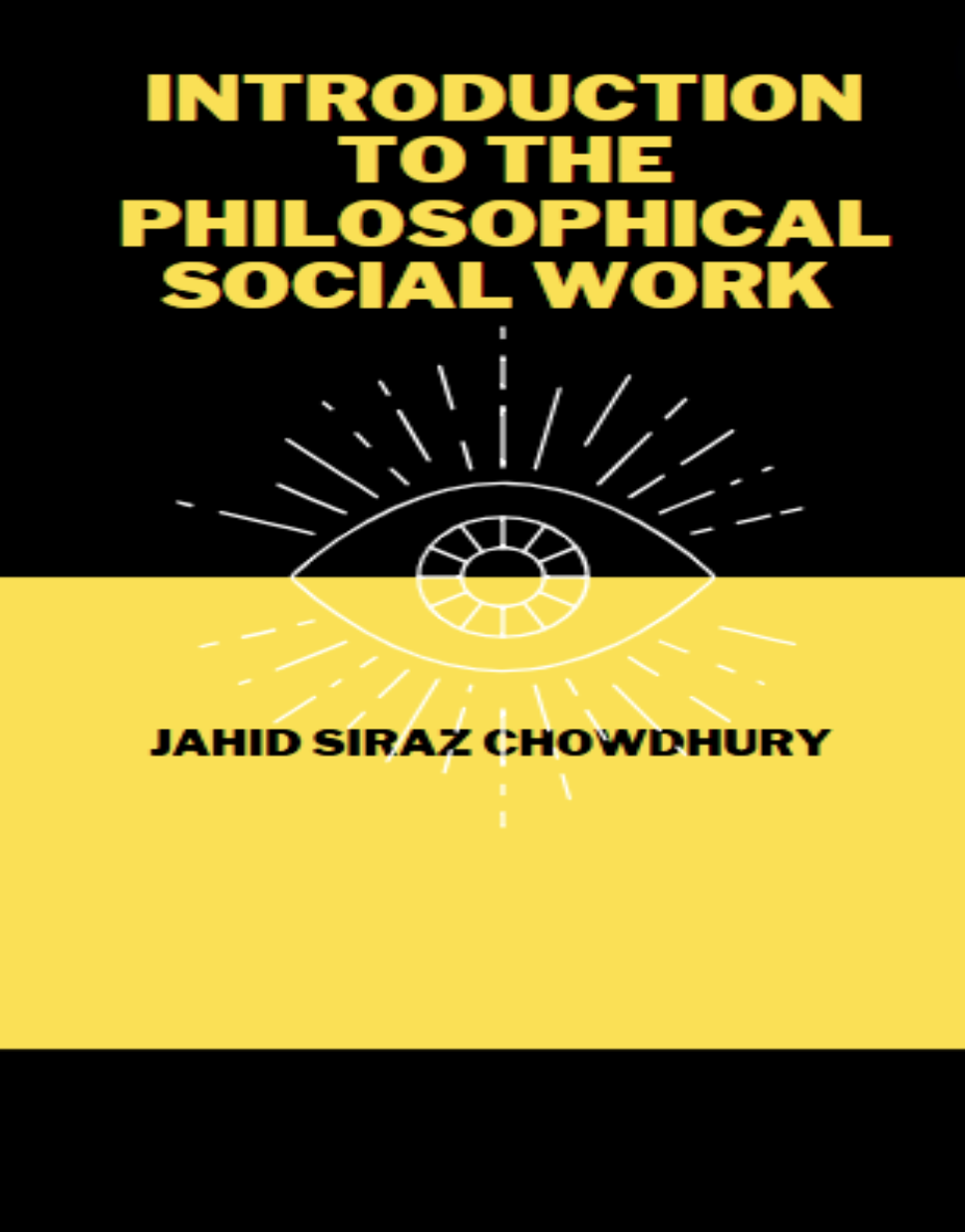

INTORDCUTION TO PHILOSOPHICAL SOCIAL WORK
A TEXTBOOK
Latest edition | 2024
Overview
Global South requires a multi-faceted approach. Social work, a discipline deeply rooted in the complexities of human experience, finds its intellectual foundation in philosophy. It is a profession that continually grapples with profound questions about the nature of justice, the meaning of human suffering, and the role of the individual within society. This book invites readers on an exploration of the philosophical underpinnings of social work, delving into the rich tapestry of ideas that have shaped the profession's identity, values, and practices. From the ancient Greeks to contemporary thinkers, philosophers have pondered the nature of knowledge, morality, and the good life. These timeless questions have direct relevance to the work of social workers, who daily confront ethical dilemmas, grapple with complex social issues, and strive to empower marginalized communities. This text examines how philosophical concepts, such as justice, equality, and human rights, have informed social work theory and practice, providing a framework for understanding the profession's role in promoting social change. Moreover, we explore the ways in which philosophy can enhance critical thinking and reflective practice among social workers. By examining diverse philosophical perspectives, practitioners can develop a deeper appreciation for the complexities of human behavior and the social structures that shape our lives. This book encourages readers to question assumptions, challenge prevailing norms, and seek innovative solutions to the pressing social issues of our time. Ultimately, this book aims to inspire and equip social workers with the tools they need to navigate the complexities of their profession. By grounding our practice in a strong philosophical foundation, we can enhance our ability to critically analyze social problems, develop effective interventions, and advocate for the rights and well-being of those we serve. It is our hope that this book will stimulate intellectual curiosity, foster ethical reflection, and inspire a new generation of social workers committed to creating a more just and equitable world. This book is not merely an academic exercise; it is a call to action. It invites social workers to engage in deeper philosophical reflection, to question assumptions, and to expand their understanding of the profession's potential for positive social change. By exploring the rich tapestry of philosophical thought, we hope to inspire a new generation of social workers who are equipped to meet the challenges of the 21st century with wisdom, compassion, and a steadfast commitment to social justice. Ultimately, this book is a testament to the belief that philosophy is not a luxury for social workers, but a necessity. By understanding the philosophical foundations of our work, we can better understand ourselves, our clients, and the world around us. By drawing on the strengths of both individual transformation and collective action, while also incorporating the wisdom traditions of the region, we can develop a more robust and comprehensive strategy for building a just and equitable world. It is through this inclusive and integrated approach that we can truly make a meaningful impact and work towards a better future for all.
About this book
Main Chapters
Preface
Acknowledgments
Introduction
Part I: The Topic
Chapter 1: Philosophy and Social Work – An Intimate Embrace
Chapter 2: Exploring the Role of Ethics and Morality in Social Work
Chapter 3: Exploring the Intersection of Human Rights, Social Justice, and Advocacy
Chapter 4: Power, Oppression, and Privilege in Social Work Practice
Chapter 5: Cultural Competency in Social Work
Chapter 6: Exploring Indigenous Research Paradigms and Global Southern Cosmovisions
Chapter 7: Decolonizing Social Work: Exploring the Philosophical Grounds and Implications
Chapter 8: Decolonizing Our Ontological Setting in Social Work – Repairing the Self through Cosmic Connection
Chapter 9: Decolonizing Our Epistemology – Volunteering and Knowledge Democracy in Social Work
Chapter 10: Ubuntu as Axiology in Social Work
Chapter 11: Buen Vivir as a Moral Guideline for Social Work
Chapter 12: Knowledge Democracy through Community Participation
Chapter 13: Ihsanic Philosophy as Ethics
Chapter 14: Decolonizing the Self and the Bookshelf – A Way Forward with the People
About the author (1)
jahid siraz chowdhury
Jahid Siraz Chowdhury, Ph.D., is a researcher and scholar committed to reciprocal knowledge creation, bridging the gap between indigenous wisdom and global legal frameworks. His work critically examines how sociology of knowledge shapes research practices, advocating for a phronetic approach that values practical, ethical, and context driven inquiry. He actively engages with Indigenous knowledge systems, seeking ways to integrate them into international agreements such as the CBD (Convention on Biological Diversity), Nagoya Protocol, and ILO standards, while aligning with the Sustainable Development Goals (SDGs). Dr. Chowdhury highlights the disproportionate impact of mainstream education systems on marginalized students and challenges Eurocentric knowledge production. He champions knowledge democracy, ethical research, and Ihsanic action. His ultimate goal is to redefine research as a reciprocal process, free from regional, religious, or racial biases, ensuring that academic outcomes genuinely benefit communities rather than remaining abstract theories.
Similar books being viewed by others
Bibliographic Information
Book Title
INTORDCUTION TO PHILOSOPHICAL SOCIAL WORK
Book Series
INTORDCUTION TO PHILOSOPHICAL SOCIAL WORK
Book Subtile
A TEXTBOOK
Book URL
https://trc-sapphirepublisher.com/book/intordcution_to_philosophical_social_work
Book Author
Publisher
www.globalpublisher.com
Keywords
Thesis Sample 2 Sample 1 Sample 3 Sample 4 Sample 5 Test



